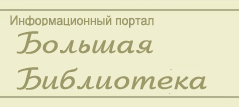Другое : The British Parliament
The British Parliament
The British Parliament
The British Parliament is the oldest in the world. It
originated in th 12th century as Witenagemot, the body of wise councilors whom
the King needed to consult pursuing his policy.
The British Parliament consists of the House of Lords
and the House of Commons and the Queen as its head. The House of Commons plays
the major role in law-making. It consists of Members of Parliament (called MPs
for short). Each of them represents an area in England, Scotland, Wales and
Ireland.
MPs are elected either at a general election or at a
by-election following the death or retirement. Parliamentary elections are held
every 5 years and it is the Prime Minister who decides on the exact day of the
election. The minimum voting age is 18. And the voting is taken by secret ballot.
The election campaign lasts about 3 weeks, The British
parliamentary system depends on political parties. The party which wins the
majority of seats forms the government and its leader usually becomes Prime
Minister.
The Prime Minister chooses about 20 MPs from his party
to become the cabinet of ministers. Each minister is responsible for a
particular area in the government. The second largest party becomes the
official opposition with its own leader and "shadow cabinet".
The leader of the opposition is a recognized post in
the House of Commons.
The parliament and the monarch have different roles in
the government and they only meet together on symbolic occasions, such as
coronation of a new monarch or the opening of the parliament. In reality, the
House of Commons is the one of three which has true power.
The House of Commons is made up of six hundred and
fifty elected members, it is presided over by the speaker, a member acceptable
to the whole house.
MPs sit on two sides of the hall, one side for the
governing party and the other for the opposition. The first 2 rows of seats are
occupied by the leading members of both parties (called "front
benches") The back benches belong to the rank-and-life MPs.
Each session of the House of Commons lasts for 160-175
days. Parliament has intervals during his work. MPs are paid for their
parliamentary work and have to attend the sittings.
As mention above, the House of Commons plays the major
role in law making. The procedure is the following: a proposed law ("a
bill") has to go through three stages in order to become an act of
parliament, these are called "readings". The first reading is a
formality and is simply the publication of the proposal. The second reading
involves debate on the principles of the bill, it is examination by
parliamentary committee. And the third reading is a report stage, when the work
of the committee is reported on to the house. This is usually the most
important stage in the process.
When the bill passes through the House of Commons, it
is sent to the House of Lords for discussion, when the Lords agree it, the bill
is taken to the Queen for royal assent, when the Queen sings the bill, it
becomes act of the Parliament and the Law of the Land.
The House of Lords has more than 1000 members,
although only about 250 take an active part in the work in the house. Members
of this Upper House are not elected, they sit there because of their rank, the
chairman of the House of Lords is the Lord Chancellor. And he sits on a special
seat, called "Woolsack" The members of the House of Lords debate the
bill after it has been passed by the House of Commons. Some changes may be
recommended and the agreement between the two houses is reached by
negotiations.
Список
литературы
Для подготовки
данной работы были использованы материалы с сайта http://english-language.chat.ru/
|


